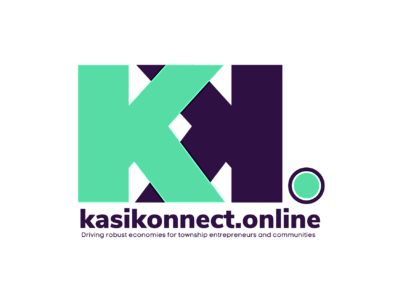TRUST and township economies in 2023
Posted by Admin (JS) on 01 September 2023, 09:40 SAST
.png)
As designers and curators of online communities, our interest in how platform technology could support township economies started in at the end of 2021.
.png)
When one thinks about building connected ecosystems of online communities, it's necessary to understand the environment to some extent, but this one just feels more complex than most.
According to an online article published on RMB’s site, ‘Informal markets and rural areas boast strong economic activity and are formalizing rapidly.’[1]
In apparent support of the above, one can read The Township Economic Development Bill – March 2022, that states.
“To provide for the promotion and development of the township economy and to create a conducive environment for the attainment of that purpose; to provide for licensing of township based enterprise.”
The fact remains that over 38% of our population live in townships where just ‘a precarious at best’ 17% of employment is provided. But the potential is far greater.
As you the reader, may have picked up, we’re not policy experts, not economists or researchers, and certainly not township experts, although we’ve been smart enough to engage with those who are.
An incredibly invaluable resource has been an ILO study, Identifying barriers to formalization published in April 2021. The report notes that one of the barriers is, a lack of trust.
“At a social level, informal enterprises seem not to trust the agencies to which they have to report. Distrust stems from endless frustration and slow delivery, but also from bribery and corruption”.[2]
A highly informative paper published by Harris Makhudu and MF Zerihun in July 2022 further delves into the theme of corruption as a barrier to formalisation.
“South Africa ranks very high as one of the most corrupt countries in the world (Transparency International 2017), and this has also affected informal small businesses endeavouring to mainstream their businesses. Government and other private institutions’ members of stuff take advantage of long frustrating processes that are in place to be followed by small businesses. When registering, officials demand to be paid so that they can speed up processes. In as much as this can be a benefit to some especially those who can afford to pay bribes, it has emerged as a challenge for most entrepreneurs as this adds costs.”[3]
I’ve quoted just a handful of the research papers and articles read. The theme of broken trust is sadly far too recurrent. So what’s to be done?
I actually discovered, while researching this blog, that South Africa has a National Anti-Corruption Strategy 2020 – 2030. As would most of us, I read it with a level of scepticism, well cultivated through the past couple of decades. In 2018, while the strategy was in development, Corruption Watch commented that there was simply not the will to enforce it. [4]
For those of us who have recognized that true kasipreneurs development is mission-critical, we cannot afford to exclude this trust issue from our narrative. This may, in itself, require collaborative solutions thinking. Kasipreneurs on their formalisation journey, currently face many barriers, including bloated bureaucratic processes. There are some barriers that programmes such as ours, can tackle, but let’s keep the trust issue front and centre, encourage reporting and active citizenry and explore mechanisms that demonstrate proactive consequences.
In a country seemingly mired in doom and gloom, we have an exciting journey ahead.
Janice Scheckter, is CEO of Indigo Africa, and A Better Africa Holdings. Passionate about Africa, being optimistic, and the power of platforms to drive change.
[2] Identifying barriers to formalization
A snapshot of key challenges in South Africa’s informal economy, including in times of Covid-19, and suggested measures on how to get policies and incentive structures right
[3] Qualitative analysis of transiting from informal to formal sector: The case of manufacturing and service businesses in Gauteng province of South Africa (https://www.tandfonline.com/doi/full/10.1080/23322039.2022.2095765)
[4] https://www.corruptionwatch.org.za/national-anti-corruption-strategy-overview/#toggle-id-10
